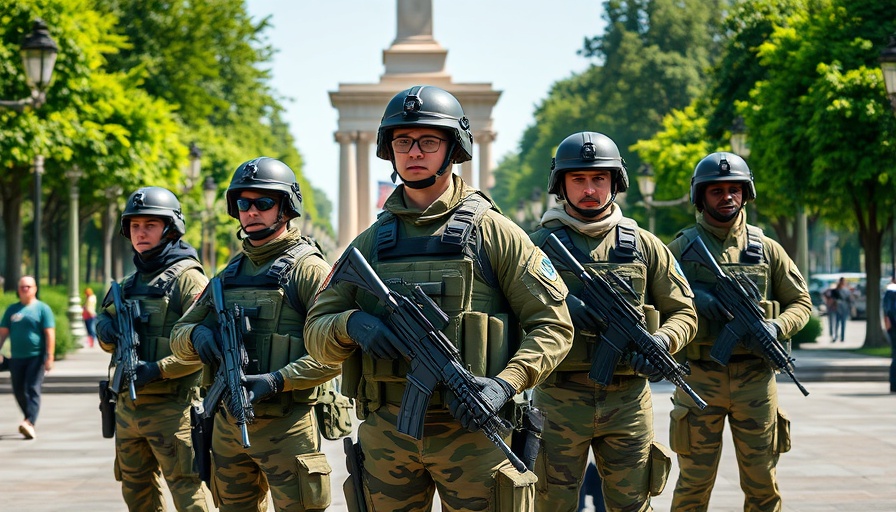
Understanding the Militarization of Cities in America
In a surprising turn of events, the Pentagon has announced that some National Guard units stationed in Washington, D.C., are now armed. This decision aligns with President Trump’s broader strategy to possibly deploy military forces in various cities amid growing concerns over unrest and protests. As tensions rise across the nation, this shift is crucial to understanding how the perception of security and freedom intertwines.
A Complex History: Military and Civil Order
The militarization of local police and National Guard units is not a new phenomenon in the United States. The history of military involvement in civil affairs dates back to the Civil War and has been a subject of heated debate ever since. For many older Americans, including those here in Louisiana, this brings to mind memories of significant national events, like the civil rights movement of the 1960s when federal troops were dispatched to maintain order in the South. Such actions, while intended to ensure safety, have often ignited fear among citizens regarding state control and individual freedoms.
Why Armed Guards in Cities Matter
The decision to arm National Guard troops is layered, signaling the Administration's readiness to respond vigorously to disturbances. For seniors, the implications are multifaceted. It's crucial for this demographic to reflect on their safety—not just in terms of physical security, but also in relation to civil liberties. The sight of armed soldiers on city streets can evoke a sense of protection for some, while fostering anxiety about the potential for excessive force against citizens exercising their rights.
Emotional Impact on Local Communities
Think about how this news might resonate with seniors who have lived through turbulent times. Elderly residents of Louisiana might recall the fear instilled by armed military presence during tumultuous periods in history. For many, it conjures up concerns about escalating violence and the implications for their families and neighborhoods. Every generation must grapple with how far they're willing to permit military presence in civilian life in efforts to restore peace.
Parallel Examples: Security vs. Freedom
When examining the decision to arm the National Guard, we can look to several other global instances where military presence has been utilized to quell unrest. Countries like France and Brazil have faced similar dilemmas, balancing the need for security with the risks of civilian rights violations. These parallels invite serious questions for our American society: At what point does safety compromise our cherished freedoms?
Future Predictions: What Lies Ahead?
Looking to the future, as tensions in cities grow, it is likely that we will see an increase in military and National Guard presence in urban areas. Experts caution against this trend, warning that a heavy-handed approach could lead to further escalations. It’s imperative that citizens, especially older adults who have seen this tactic unfold before, remain vigilant and engaged in community discussions about the implications of militarization in domestic settings.
Empowering Civic Engagement: The Role of Seniors
The voices of seniors hold significant power in shaping public opinions and community policies. It is vital for older adults to mobilize and advocate for their perspectives about military presence in civilian areas. Sharing personal narratives and experiences can contribute to a broader understanding among younger generations about the potential consequences of militarization.
Taking Action: What Can You Do?
As tensions rise, raising awareness in local communities becomes critical. Residents can attend town hall meetings, engage in discussions, and foster dialogues around the implications that armed Guards present. Connecting and discussing with friends, neighbors, and family can amplify the concerns of seniors as they voice their apprehensions about the evolving security landscape. Collective action can lead to a more nuanced approach that prioritizes safety while safeguarding individual rights.
In these unprecedented times, it is essential for all age groups, particularly those in the senior community, to remain informed, active, and engaged. Your voice matters—consider discussing these developments with friends and community members, staying informed about your rights, and advocating for peaceful resolutions to conflicts. Together, we can help shape a future that values both security and freedom.
 Add Row
Add Row  Add
Add 



Write A Comment